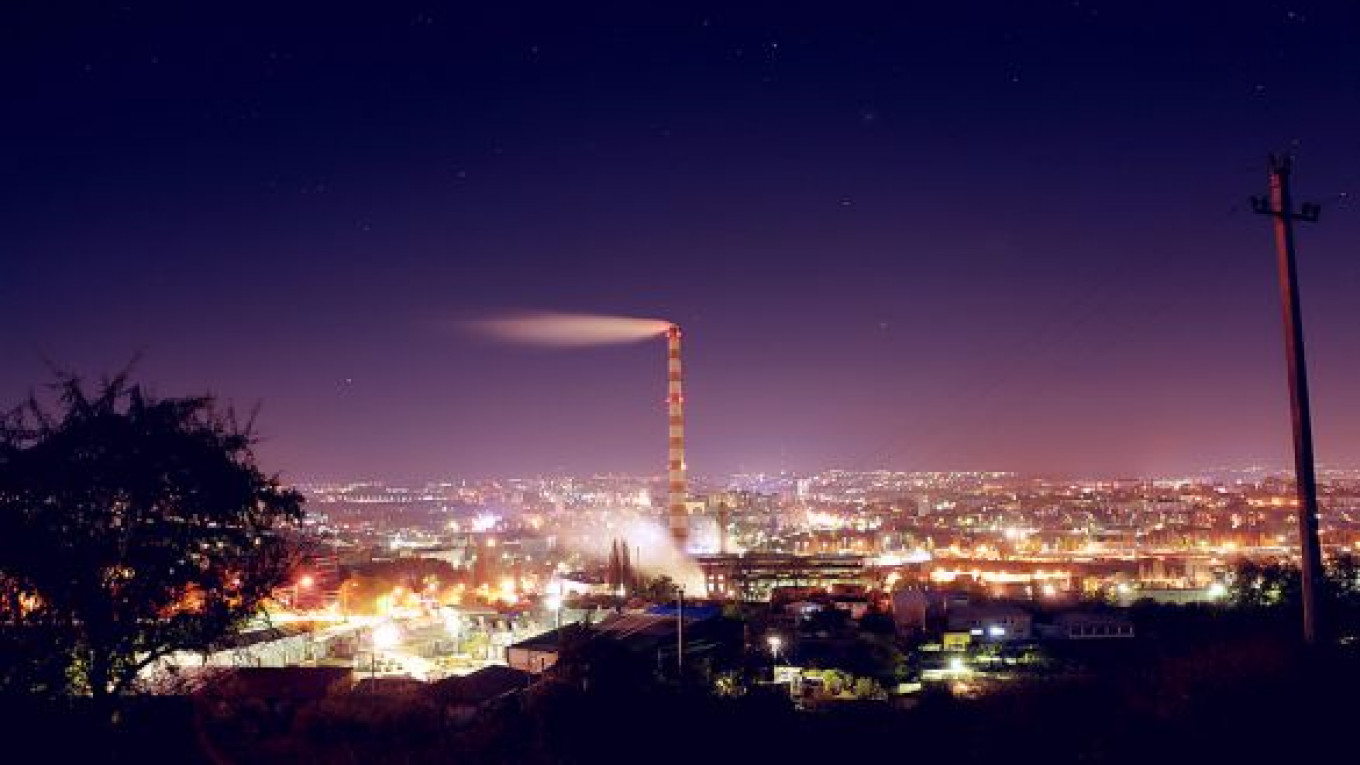CHISINAU — A Russian official has warned Moldova that its pro-Europe drive could cause it to lose for good its control over the breakaway territory of Transdnestr and lead to a more costly energy relationship with Russia, its main supplier of gas.
Deputy Prime Minister Dmitry Rogozin stepped up pressure on Moldova, a former Soviet republic and one of Europe's poorest states, as Moscow also continued to bear down on Ukraine over its European integration plans.
Moldova, following the path of neighboring Ukraine, expects to initial association and free trade agreements with the European Union at a November summit in Vilnius, Lithuania, marking a clear break with its Soviet past.
The deputy prime minister bluntly expressed his negative view of a pro-European drive, linking it to potential problems with energy supply.
In comments after talks with Moldovan Prime Minister Iurie Leanca, Rogozin likened Moldova to a locomotive on a perilous course of twists and turns that could cause it to lose some of its carriages — an allusion to its rebel enclave of Transdnestr.
In a barbed reminder to Moldova of its total reliance on gas imports from Russia, he also said Monday that "Energy supplies are important in the run-up to winter. I hope you won't freeze."
The former Soviet republic of 3.5 million people is heavily in debt to Moscow for cheap gas imports that help keep its economy afloat.
The separatist, mainly Russian-speaking, region of Transdnestr broke with Moldova's central government after a short war in 1992 and sees Moscow as its patron. But its status remains undecided, despite years of international talks.
In further comments, Rogozin said Moldova's policy of European integration represented a threat for any lasting settlement on Transdnestr.
"People in Transdnestr are very alarmed at Moldova's plans, particularly those linked to entering a free trade zone with the EU," he said speaking at a pro-Russia forum in Chisinau.
Rogozin, a former Russian ambassador to NATO, warned the Moldovan leadership that Europe was "not a place for the weak."
"After my meetings, I have the impression that certain Chisinau officials assume that after signing agreements with the EU the whole of Moldova will be [covered] in jam or honey. But this signing will only mean for Moldova a carrot to entice it somewhere or other," he said.
Rogozin's strong words to Moldova came after similar Kremlin warnings to Ukraine that also wanted to tie up association and free trade deals with the EU in Vilnius.
In a warning shot to Ukraine last month, Russia conducted extra customs checks on Ukrainian imports over several days and President Vladimir Putin spoke of possible "protective" measures by Moscow and its Customs Union allies Belarus and Kazakhstan.
Ukraine says Russia will remain a strategic partner even after agreements with the EU. President Viktor Yanukovych told parliament Tuesday to draw up draft legislation to prepare the country for the agreements to be signed and provide for "success" in Vilnius.
A Message from The Moscow Times:
Dear readers,
We are facing unprecedented challenges. Russia's Prosecutor General's Office has designated The Moscow Times as an "undesirable" organization, criminalizing our work and putting our staff at risk of prosecution. This follows our earlier unjust labeling as a "foreign agent."
These actions are direct attempts to silence independent journalism in Russia. The authorities claim our work "discredits the decisions of the Russian leadership." We see things differently: we strive to provide accurate, unbiased reporting on Russia.
We, the journalists of The Moscow Times, refuse to be silenced. But to continue our work, we need your help.
Your support, no matter how small, makes a world of difference. If you can, please support us monthly starting from just $2. It's quick to set up, and every contribution makes a significant impact.
By supporting The Moscow Times, you're defending open, independent journalism in the face of repression. Thank you for standing with us.
Remind me later.






